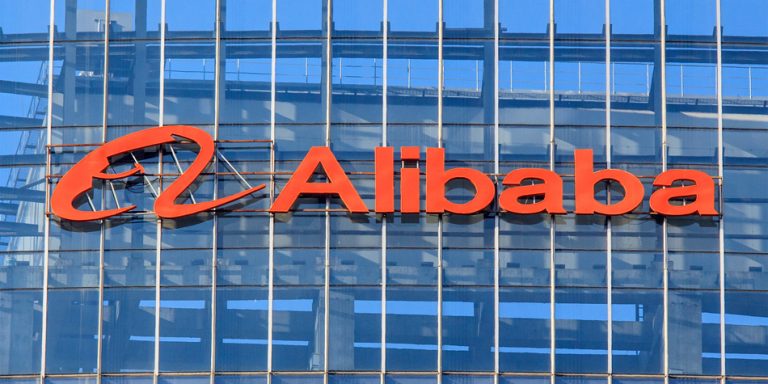By any fundamental measure, Alibaba (NYSE:BABA) stock is a steal. Alibaba stock trades at 34x FY18 (ending March 31) adjusted EPS, and 30x free cash flow. That’s after a year where revenue grew 58%, adjusted earnings rose 40%, and free cash flow climbed 44%.
In this market or in any market, investors generally would pay a much higher premium for that type of growth. And yet in the case of BABA stock, they simply refuse. Alibaba stock sits at a 3-month low – and hasn’t really moved for about nine months now. Save for a huge 11-month run that began in late 2016, Alibaba has traded sideways for most of its nearly four years on the public markets.
What gives? Why does Alibaba receive such a discount? And when will that change, if it does at all?
Alibaba Is Ridiculously Cheap
Using any basic valuation technique, Alibaba is a steal. Any discounted cash flow model suggests upside barring a massive deceleration in cash flow growth. And on a P/E basis, Alibaba’s valuation looks somewhere close to ridiculous.
Indeed, the stocks with similar forward P/E multiples to Alibaba have much smaller growth prospects.
Microsoft Corporation (NASDAQ:MSFT), for instance, is a wonderful company, but also a mature one with single-digit revenue growth. It trades at 22x forward EPS, against 22.8x for Alibaba. Consumer products maker Church & Dwight (NYSE:CHD), spice maker McCormick (NYSE:MKC), even Sirius XM Holdings (NASDAQ:SIRI) all trade in the same ballpark as Alibaba on a forward earnings basis.
That’s not to criticize those companies or their valuations. I own McCormick, in fact. But none of the companies in the same valuation ballpark shows anything close to the current growth that Alibaba is posting.
Nor do any have the potential opportunity created by the migration of tens of millions of potential customers into the Chinese middle class, expansion across Southeast Asia, or potentially beyond.
Indeed, there’s a reasonable case for Alibaba to have enormous upside from here; again, just based on the numbers. From that perspective 30x forward EPS or higher isn’t an unreasonable figure, and values Alibaba stock at $237+ against Monday’s close of $178. Can it get there?
Not Just the Numbers
The problem with Alibaba stock is that it’s about more than just the numbers, or at least, just Alibaba’s profit numbers. There are myriad risks here. For all the growth China is posting, investors still don’t trust the Alibaba’s economic data.
And the country remains under the grip of a single-party, at least nominally Communist government. While some investors see Chinese exposure as a positive owing to its steadily-growing upper and middle classes, others see it as a negative.
Alibaba’s Chinese domicile raises other problems. Owing to Chinese restrictions on foreign ownership, Alibaba shareholders don’t actually own shares in the company but rather in a variable interest entity based in the Cayman Islands.
That VIE structure raises accounting questions as well. The Chinese yuan continues to tumble, making Alibaba’s profits less valuable in dollars and explaining some of the recent pressure on Alibaba stock.
Alibaba may be referred to as the Amazon.com (NASDAQ:AMZN) of China but it isn’t (if anything, JD.com (NASDAQ:JD) is.) Alibaba isn’t Amazon or Alphabet (NASDAQ:GOOG,GOOGL) or Walmart (NYSE:WMT). Alibaba stock is getting a discount because of those external factors, and it likely will be a long time before investors stop assigning that discount.
Is Alibaba Stock a Buy?
And so Alibaba’s value is left somewhat in the eye of the beholder. Does exposure to China present an enormous growth opportunity. or a massive potential risk? Can the Chinese central government be trusted to at some point open its markets? Is Alibaba at risk of being collateral damage in an escalating trade dispute between the U.S. and China? Are the numbers real?
These are real questions being asked by serious investors. And so the mostly sideways trading of Alibaba stock and seemingly huge discount to fundamental valuation makes more sense. Investors certainly can dismiss those concerns, and see the opportunities as outweighing the risk. With Alibaba pulling back, I’m personally sympathetic to that view.
But investors shouldn’t think that the market isn’t paying attention, or that nefarious ‘shorts’ are keeping the price of Alibaba stock down. Many of those shorts likely are hedging long positions in Altaba (NASDAQ:AABA) anyhow.
The market is paying attention. And with risks to the Chinese economy rising, and the yuan falling, it’s deciding that for the moment there are better investments than Alibaba.
As of this writing, Vince Martin is long shares of McCormick & Company. He has no positions in any other securities mentioned.

